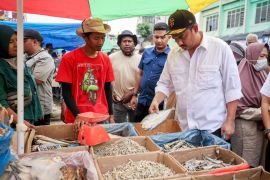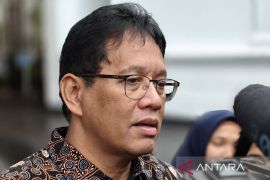London (Antara) - Growing demand for Indonesia's palm oil and its domination of the world market was an attracting topic in a conference held at the Indonesian Consulate General in Hamburg, Germany, on Saturday. Chairman of the Indonesian Palm Oil Council Derom Bangun told more than 100 delegates to the conference that palm oil is gaining domination from soybean oil and competes with other vegetable oils such as canola oil and sunflower oil. Indonesia is currently the world's largest producer of palm oil and therefore, any issue related to the commodity would be important for the country, Bangun said in the the Oil World Outlook Conference, organized by ISTA Mielke GmbH (Oil World), a company operating in data analysis and information about world market of edible oils. Bangun spoke about latest information about development of palm oil industry in Indonesia to counter many negative issues about the industry notable in Europe, Minister Counselor at the Consulate General Andi D. Yudyachandra said. Bangun said palm oil industry provides livelihood for millions of Indonesian farmers, adding 42 percent of 9.1 million hectares of oil palm plantations in the country are owned by smallholders. He denied accusations that Indonesia has destroyed its tropical forests to provide space for oil palm plantations. The government has issued regulation to protect the environment including the forests such as by zero burning regulation in opening new plantations. The government has also extended moratorium banning conversion of forests into new plantations, Andi quoted Bangung as saying. Bangun said he was confident that palm oil would continue to dominate vegetable oil market in the European Union despite restriction and attempt to boycott Indonesian palm oil based products like bio-fuel. Palm oil has an advantage such as in texture being remaining solid under room temperature compared with other vegetable oils which are liquid in form, he said. In addition, oil palm trees are more efficient in the use of land, he said. He cited based on data from Oil World 2011, oil palm plantations totaled only 12 million hectares or 5 percent of a total of 253,923,000 hectares of lands used by plants producing vegetable oil as against soybean accounting for 41 percent, canola accounting for 13 percent, sunflower for 10 percent and other plants for 3 percent. He said Indonesia, which is set to produce 42 million tons of crude palm oil in 2020, or up from an estimated 29.5 million tons in 2014, carries great weight in the vegetable oil world. One of the big challenges being faced by Indonesian palm oil producers is to include palm oil in the APEC's commodity agenda to be accepted as an inclusive and sustainable commodity. Indonesia is especially interested in having palm oil in the agenda as palm oil concerns the welfare of many Indonesian farmers and to reduce poverty in rural areas. Indonesian Consul Marina Estella Anwar Bey said palm oil is a prima donna commodity for Indonesia and the European Union is the third among 10 largest markets for the country's palm oil. Marina said a number of issues have restricted entry of Indonesian palm oil to the European Union market such as report of destruction of forests and habitat of orangutans by oil palm plantation companies.(*) (S012/A. Saragih/Suharto)









